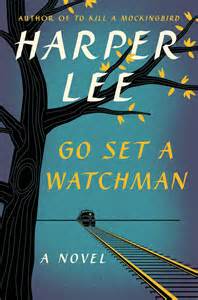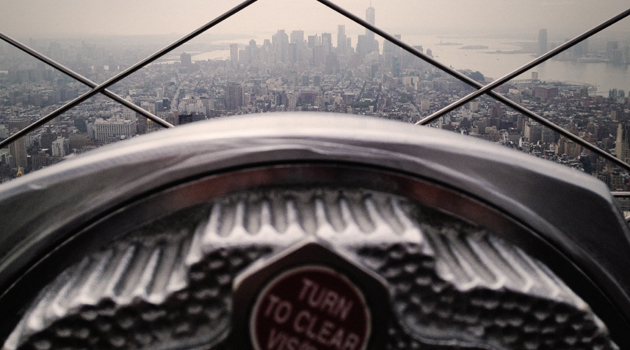 Now that the hoi polloi have had a chance to read Harper Lee’s “new” book, I don’t feel uncomfortable writing about it before most people have had a chance to make up their own minds. (Spoiler alert: those of you still on the waiting list at your local public library, I’m going to talk about the way Lee supposedly shreds the moral fiber of everyone’s favorite dad, a.k.a. Atticus Finch, like a log of string cheese. You probably already know about this though, unless you’ve just awoken from a coma. In which case: Hi. Welcome back. )
Now that the hoi polloi have had a chance to read Harper Lee’s “new” book, I don’t feel uncomfortable writing about it before most people have had a chance to make up their own minds. (Spoiler alert: those of you still on the waiting list at your local public library, I’m going to talk about the way Lee supposedly shreds the moral fiber of everyone’s favorite dad, a.k.a. Atticus Finch, like a log of string cheese. You probably already know about this though, unless you’ve just awoken from a coma. In which case: Hi. Welcome back. )
What a bunch of babies, all those people crying about Atticus turning out to be racist! I was more shocked by Jean Louise’s uncle punching her in the face and busting her lip to calm her down at the end of the book. And then by how she does calm down, and they proceed to have a drink and a reasonable conversation. The whole thing was very, hey, you know, sometimes you just need to smack a hysterical woman.
But that’s not what this post is about. Or maybe it is, obliquely, in that it’s about irresponsible and socially damaging attitudes that are deeply entrenched within a culture, and at which no one so much as bats an eye.
In short, I liked that Atticus turned out to be a racist. Not because I like racism, but because as a writer and a deeply flawed human being, I appreciate writing that reflects other human beings as human-being-like, which is to say, both deeply flawed and yet capable of good. At our very best, this is all that anyone can hope to be. But my appreciation for the besmirching of Atticus’s character goes further. I think Lee was making a point about racism itself, one that is every bit as valid today as it was in the 1950s.
Her point, I think, is this: Sometimes people who don’t think of themselves as racists, are. It’s not an earth-shattering revelation, but it begs the question, If it was true of Atticus Finch, could it also be true of me? Atticus, after all, does not see himself as a racist person. Neither do Jean Louise’s aunt or fiancé. Rather, they see themselves as kindly toward Black people. Their opinions on the habits, culture and limitations of Black people are, they believe, based upon observations and therefore constitute plain facts. The racism at which Lee is striking out, I believe, is different than the overt, blunt-trauma variety of Mockingbird. It’s more insidious, and depending upon your milieu, more socially accepted.
To wit: I grew up in a proudly Southern community. We didn’t have a Confederate flag on our school lawn or anything, but more than once I heard it defended as a symbol of “heritage.” As a child, I also heard the argument that the South’s position in the Civil War wasn’t about slavery per se, it was about state’s rights, and it was economic (never mind that the economy of the South was based upon slave labor). So when Atticus breaks it down to Jean Louise at the end of the book, explaining The Way Things Are, it all felt very familiar to me.
At the same time, none of the adults I knew growing up would have considered themselves racist. It was a Christian community; KKK-style racism wold have been condemned. Nevertheless, racist jokes were told. Mixed-race dating was discouraged. The reason? Differences between “them” and “us” were insurmountable — and then there was the supposed censure of society at large to contend with.
This is the reality: unlike Jean Louise, most of us are not “born color blind.” In our country, people who are not racist have to be ultra-conscious, willing to evaluate every thought they have about “the other” — whatever color their skin may be. They have to learn to recognize racism’s variform manifestations, and to yank it out of themselves by the roots. It’s a lot of work, actually. Sort of like weeding a garden, every day.
The flaws of Watchman are manifold, I can’t argue with that. It’s unfortunate that for whatever reason, Lee wasn’t willing or able to give this novel the same careful attention she gave to Mockingbird, revising and polishing it into a real gem. But even if she had, I think it would still have been reviled. The book is meant to make us uncomfortable — in our own culture, in our own skins. “I’m tired of having my heroes knocked down,” someone recently complained to me, shortly after the book’s release. But if we don’t have heroes on some pedestal being saintly for us, then the work isn’t finished; it remains up to us.
 E. D. Watson is Newfound’s Blog Editor. A writer by day and a library clerk by night, her stories have appeared in Bodega, [PANK], Narrative, and THIS., among other publications. She eats cheddar-and-mayonnaise sandwiches when no one is looking.
E. D. Watson is Newfound’s Blog Editor. A writer by day and a library clerk by night, her stories have appeared in Bodega, [PANK], Narrative, and THIS., among other publications. She eats cheddar-and-mayonnaise sandwiches when no one is looking.


0 comments on “In Defense of ‘A Watchman’”